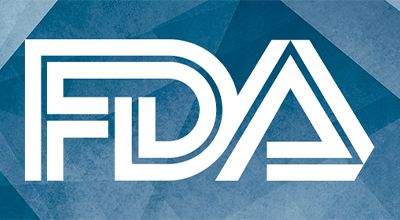FDA Delivers Complete Response Letter for Retifanlimab for SCC Subgroup
The FDA has determined that more data are necessary to certify the clinical benefit of retifanlimab for the treatment of squamous cell carcinoma of the anal canal.
FDA Delivers Complete Response Letter for Retifanlimab for SCC Subgroup

The FDA has delivered a complete response letter to Incyte Corporation stating it is unable to approve the biologics license application (BLA) for retifanlimab (INCMGA 0012). The application sought to treat adult patients with locally advanced or metastatic squamous cell carcinoma of the anal canal who have either progressed on, or cannot tolerate, platinum-based chemotherapy, in its present form. 1
The regulatory agency determined that more data are needed to showcase the clinical benefit of the intravenous PD-1 inhibitor for use in this patient population. The global biopharmaceutical company is reviewing the letter and will discuss next steps with the FDA in the future.
“Patients with SCAC who have progressed after first-line chemotherapy currently do not have approved treatment options,” Hervé Hoppenot, chief executive officer of Incyte, stated in a press release. “While we are not surprised with the FDA decision given the Oncologic Drugs Advisory Committee [ODAC] recommendation, we are disappointed. We remain committed to advancing science to find solutions for patients with unmet medical needs, and we will ensure close coordination with the FDA in order to address feedback and determine next steps for the review of retifanlimab.”
Previously, in June 2021, the FDA’s ODAC voted 13 to 4 to hold off on a decision regarding the accelerated approval of the immunotherapy for use in this population.2 The BLA submission was supported by data from the phase 2 P0D1UM-202 trial (NCT03597295), which were presented during the 2020 ESMO Virtual Congress and had demonstrated that the agent had promising activity in patients with platinum-refractory SCAC, including those positive for human immunodeficiency virus (HIV).3
In the open-label, single-arm, multicenter trial, investigators enrolled 94 patients with confirmed locally advanced or metastatic SCAC. Patients needed be at least 18 years of age, have progressed on or following platinum-based chemotherapy, and had measurable disease per RECIST v1.1 criteria. Patients also needed to have an ECOG performance status of 0 or 1.
Study participants were administered retifanlimab intravenously at a dose of 500 mg once every 4 weeks as part of a 28-day treatment cycle for up to 2 years. The primary end point of the trial was objective response rate (ORR) by ICR and RECIST v1.1 criteria. Secondary end points included duration of response (DOR), disease control rate (DCR), progression-free survival (PFS), overall survival (OS), and safety.
The median age of patients on the trial was 64 years, 61% were female, and 77% were White. Fifty-nine percent of patients had an ECOG performance status of 1, 10% of patients had known HIV positivity, and 42% had liver metastases. Moreover, 73% of patients had previously received chemoradiation, 17% had prior radiotherapy, and 97% had prior platinum-based treatment.
The PD-1 inhibitor was found to induce an ORR of 13.8% (95% CI, 7.6%-22.5%) per independent central review assessment, in accordance with RECIST v1.1 criteria; this included a complete response rate of 1.1%, a partial response rate of 12.8%, and a stable disease rate of 35.1%. Moreover, 45.7% of patients had progressive disease.
The median DOR with the immunotherapy was 9.5 months, and responses were reported in patients, irrespective of PD-L1 status, the presence of liver metastases, age, or HIV status. Additionally, the DCR achieved with retifanlimab in this population was 48.9%.
At a median follow-up of 7.1 months, the median PFS with retifanlimab was 2.3 months (95% CI, 1.9-3.6), and the median OS was 10.1 months (95% CI, 7.9–not estimated).
Just under 60% of patients (58.5%) reported a treatment-related toxicity with retifanlimab; 11.7% of these patients experienced an effect that was grade 3 or higher. About 4% of patients experienced an adverse effect that led to treatment discontinuation.
Moreover, 25.5% of patients reported an immune-related toxicity with the agent, 6.4% of which were grade 3 or higher. About 2% of patients reported an immune-related toxicity that led to discontinuation. Of all the patients who received the agent, 4.3% experienced infusion reactions. Notably, no loss of HIV control was observed in the 9 patients who were HIV positive.
Previously, retifanlimab was granted an orphan drug designation from the FDA for the treatment of patients with anal cancer.
The immunotherapy is under investigation in the ongoing phase 3 POD1UM-303/InterAACT 2 trial (NCT04472429), where it is being combined with carboplatin and paclitaxel vs placebo in patients with inoperable locally recurrent or metastatic squamous cell carcinoma of the anal cancer who have not received prior systemic chemotherapy.4
References
- Incyte provides regulatory update on retifanlimab for the treatment of certain patients with squamous cell carcinoma of the anal canal (SCAC). News release. Incyte Corporation. July 23, 2021. Accessed July 26, 2021. https://bit.ly/2V6AFe1
- Oncologic Drugs Advisory Committee (ODAC) Meeting. FDA. June 24, 2021. Accessed July 26, 2021. https://www.youtube.com/watch?v=zj1lRsDwWB0
- Rao S, Capdevila J, Gilbert D, et al. POD1UM-202: phase 2 study of retifanlimab in patients with squamous carcinoma of the anal canal who progressed following platinum-based chemotherapy. Ann Oncol. 2020;31(suppl 4):S1170-S1171. doi:10.1016/j.annonc.2020.08.2272
- Carboplatin-paclitaxel with retifanlimab or placebo in participants with locally advanced or metastatic squamous cell anal carcinoma (POD1UM-303/InterAACT 2). ClinicalTrials.gov. Updated June 11, 2021. Accessed July 26, 2021. https://clinicaltrials.gov/ct2/show/NCT04472429



